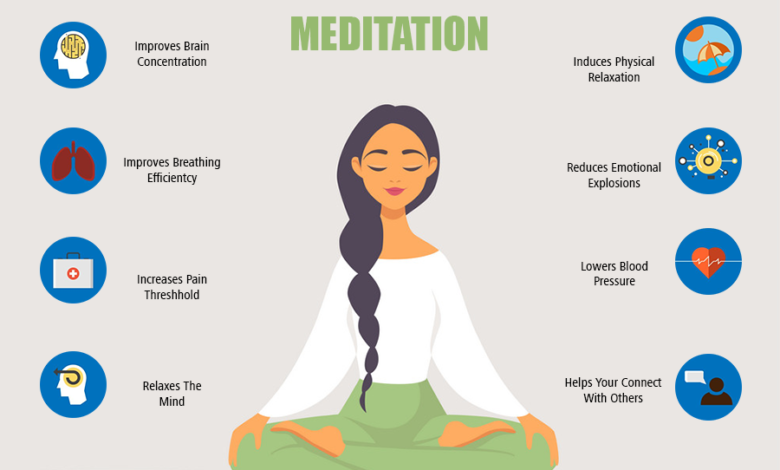
The Benefits of Meditation for Mental Health
Meditation is an ancient practice that has been used for thousands of years to improve mental, physical, and spiritual well-being. In recent years, there has been a growing interest in the benefits of meditation for mental health. Research has shown that regular meditation practice can have a positive impact on a range of mental health issues, from anxiety and depression to stress and insomnia.
Reduces Stress and Anxiety
One of the most significant benefits of meditation is its ability to reduce stress and anxiety. Studies have shown that regular meditation practice can reduce the levels of cortisol, a hormone associated with stress, in the body. Meditation can also help to reduce anxiety symptoms, such as racing thoughts and rapid heartbeat. One study found that just 10 minutes of meditation per day can have a significant impact on anxiety symptoms.
Improves Sleep Quality
Another benefit of meditation for mental health is its ability to improve sleep quality. Insomnia is a common problem among people with mental health issues, and studies have shown that meditation can help to improve sleep quality and reduce insomnia symptoms. One study found that participants who practiced meditation for six weeks saw significant improvements in their sleep quality.
Increases Self-Awareness
Meditation can also help to increase self-awareness, which is an essential component of good mental health. By practicing meditation, individuals can learn to observe their thoughts and feelings without judgment. This can help to reduce negative self-talk and increase self-compassion. By developing a greater sense of self-awareness, individuals can also improve their emotional regulation skills and reduce the impact of stress on their mental health.
Enhances Emotional Well-Being
Meditation can also enhance emotional well-being by increasing positive emotions, such as happiness and joy, and reducing negative emotions, such as anger and sadness. Studies have shown that regular meditation practice can lead to an increase in activity in the prefrontal cortex, the part of the brain associated with positive emotions. Meditation can also help to reduce activity in the amygdala, the part of the brain associated with negative emotions.
Improves Concentration and Focus
Finally, meditation can improve concentration and focus, which is essential for good mental health. Studies have shown that regular meditation practice can increase the gray matter density in the brain, which is associated with improved cognitive function. Meditation can also help to improve attention and focus, which can reduce the impact of distractions on mental health.
In conclusion, meditation is a simple yet powerful practice that can have a significant impact on mental health. By reducing stress and anxiety, improving sleep quality, increasing self-awareness, enhancing emotional well-being, and improving concentration and focus, meditation can help individuals to achieve better mental health outcomes. If you are interested in incorporating meditation into your mental health routine, consider starting with just a few minutes per day and gradually increasing your practice over time. With regular practice, you can experience the many benefits of meditation for mental health.




